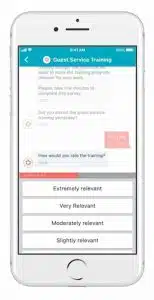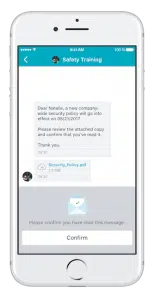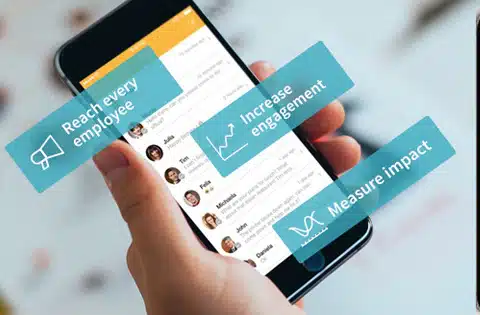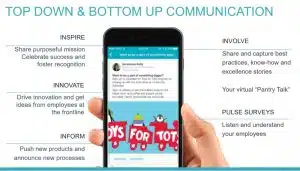In the digital age, hospitality-focused communication platforms can radically improve a hotel’s internal operations. Using industry-leading tools such as Beekeeper, hotels can easily share information about best practices, announce property updates, and coordinate tasks in the most efficient way possible.
However, in order to reap the benefits from this kind of technology, it’s vital to put the building blocks in place to ensure information is shared freely and easily among hotel management and employees.
With that in mind, here are six best practices for hotels to create a winning internal communication strategy.
1. Plan for Success
When you’re addressing your internal communication strategy, you need to start with clearly defined goals. First, address the key areas within your organisation that require attention. Perhaps guest requests don’t always get passed on when staff swap shifts. Maybe rooms aren’t turned over quickly enough because of delays in notifying housekeeping.
Next, ask yourself what steps need to be taken to solve these issues. What metric will you use to measure when improvements have been made? Once you have answers to these questions, use them to produce a detailed communication strategy. This will let you monitor progress and stay focused on making sure those improvements happen.
You may need to fine-tune your communication plan as time goes by, but the central goals should remain clear and consistent.
2. Ask for Contributions
For any new communication strategy to be a success, having buy-in from your whole team is essential. That’s why it pays to ask your staff for input on how they think communication could be improved.

Whatever approach you take, having an environment of collaboration will demonstrate that you value your employee’s opinions. According to research by Salesforce, employees who feel their voice is heard at work are nearly five times more likely to feel empowered to perform their best work.
The takeaway message here is that when company goals are created together, rather than dictated solely by management, teams become more invested and committed to the outcome. In addition, seeking feedback from your frontline staff will likely provide you with new perspectives and insights that might not have been considered.
3. Create a Culture of Sharing
To encourage hotel departments to communicate more freely, management also need to be open in the way they share information. That means letting employees know about things such as the company vision, latest booking figures, or any plans for any future expansions.
This transparent approach will set the standard for an open way of working and sharing information. In turn, employees may be more willing to express concerns over problems that need solving, feel confident enough to offer their own solutions, and admit to mistakes that reveal a weakness in the communication process.
The impact of this behavioural change will lead to greater efficiency, increased motivation, and almost certainly have a direct impact on the quality of the guest experience your hotel offers.
4. Regular Training
Another way to enhance team communication is through dedicated training. To get the most out of training, short but regular workshops that focus on a specific area can be especially helpful. For instance, you might want to concentrate on handling a weather crisis, dealing with tricky guest complaints, or coordinating daily tasks when you’re short staffed.

Not only will regular training let you fine-tune your whole business, staff will also have another forum to voice concerns, ask for help, or share ideas that they believe will improve internal processes.
While hosting face-to-face workshops won’t always be possible, you can always distribute training material electronically. Many communication platforms let you upload files, links, images, and video content — all of which can be used to provide full-scale presentations, or quick reminders that keep your team on track.
5. Use Data to Improve Decision-Making
Knowing when to communicate with your team is often just as important as how you communicate. Advanced communication platforms let you optimise when messages are sent to different staff members to ensure they get read.
For instance, by reviewing your data you might discover that your restaurant staff are quieter on Tuesday mornings. You can then schedule announcements in advance to be sent at this time. By tracking engagement with read receipts, you’ll know if your staff have more time to review messages. If they do, make that the day you send your most important announcements.
The Power of Great Communication
By investing time on your internal communication strategy, you’ll create a workforce that’s more efficient, engaged, and motivated to share ideas. As a result, this happier and more streamlined team will be able to offer an enhanced experience to your guests.
The addition of a hospitality-focused communication platform lets you improve things even further. With a centralised communication tool at your fingertips, you can reach and engage every employee in an instant, giving you the ability to easily distribute company news, gauge employee sentiment, seek feedback, and coordinate your entire operation.



